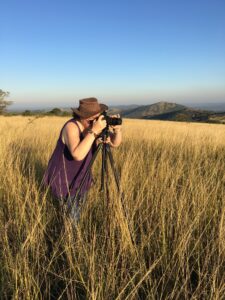In this heartfelt interview, S. Matisko shares her journey of resilience and creativity following a significant injury. Despite the challenges of a broken wrist that halted her writing and daily activities, Matisko channeled her struggles into a powerful collection of poetry. Through candid reflections and poetic expressions, she offers a profound insight into the intersection of personal hardship and artistic expression. Her story is a testament to the strength of the human spirit and the transformative power of hope and creativity. Dive into her experience as she reveals how adversity has shaped her writing and fueled her passion for connecting with readers.
1. How did breaking your wrist impact your writing process and emotional well-being?
Well, it destroyed both. Because my wrist was firmly taped up and in a cast, I could not wiggle my left fingers at all, so I had to type with one hand. I found this very upsetting because instead of being half-speed, I was writing closer to 20% of my normal output. At the time, I was writing several novels, and it put the brakes on all my projects. Writing is my major source of happiness and accomplishment. To have that taken from me sent me into a spiral. I couldn’t do the other activities I enjoyed either due to the cast—I could not bake or garden. I felt useless and angry.
2. Can you describe the process of creating your poetry book during your recovery?
I was still having creative ideas and lots of feelings about my predicament, so I wanted to write little things. It started as a weird laconic journal to keep me sane, and as time went on, it became a poetry book. I sat on the couch, with my wrist resting on a pillow, typing out any intense feeling I had. Many were about my wrist, but some were about my grief and my mental health more generally. I shared the short poems with people, and they liked them—my father especially.
3. What inspired you to share your healing journey through your poetry?
I wanted to document my feelings. While I was wrapping up, my sister broke her foot, and my aunt broke many ribs. I realized that healing is a task for everyone, so I thought my experience with it was worth sharing. I also thought some of my poems were pretty good, and they were especially good in chronological order, tracking my progress.
4. How do you cope with challenges that affect your creative work?
I think the main challenge I struggle with in terms of my work is feeling a lack of validation. Some would call it imposter syndrome. I always flew under the radar and rarely got praised for what I had accomplished. To cope with this, I try very hard to internalize any compliments I get on my writing. I am lucky because my partner is my biggest cheerleader. He helps me a lot.

5. In what ways has your experience with injury influenced your perspective on resilience?
It made me realize everybody has an Achilles heel. We all have something fragile that can crumble us into balls of agony. You have to be sympathetic to people who are struggling, even if you think it’s not that bad—because to them, it is that bad. It also reminded me of all the little things we take for granted every day. In my poetry book, I have lists of things that were obstacles for me. Small things, like putting on deodorant or opening a water bottle, were immensely challenging.
6. How do you manage the balance between creative work and personal struggles?
My creative work and personal struggles are the same. I do not balance them. They are too intermingled to be separated, let alone balanced. I think creative people are so tied to their art that it consumes them whole. I feel that way about my writing. My creative work is who I am. Sometimes, I feel like the people who read my work know me better than people who meet me in person.
7. What role does hope play in your approach to overcoming difficulties?
Hope keeps you moving forward. You have to either move or wait out the storm. Hope makes the time go. It’ll pass… it’ll get better… if nothing else, the suffering will change. Your environment, the people around you, and your resources will change, and in the differences, you will find relief from the original suffering. Hope is the mindset that keeps us alive.
8. Can you share a specific poem from your book that reflects your healing journey?
in school I had a lab partner
Biochemistry—
known for lengthy hard to finish labs
everyone had a four-person team
except mine
we were only three
and one girl had no hand
a long-had disability
the first day I told her,
if she ever needed my help
with opening the small vials
or anything
just ask
if my memory serves me,
she only asked once
and I only offered once
she never slowed us down
honestly, I never noticed
so, when I put my deodorant on quickly
for the first time in weeks
I think of her
I wonder what she would think
of my complaining
about losing my hand
for a couple weeks
I think she would be understanding
because other’s challenges are theirs
not a reflection of our own
9. How do you stay motivated and inspired during tough times?
Sometimes, to stay motivated, I take breaks. I’ll go on a walk in nature or get a coffee with a friend. A little variation can go a long way. In general, my writing is a kind of fortress that protects me from the outside world. So, when times get really tough, that’s when I feel the most inspired to write.
10. What message do you hope readers take away from your poetry book?
I hope readers understand that it is okay to be hurt and to suffer. Life is hard, but we can try to make it better. We all have our struggles in this life, and we are battling our own demons. I also want people to see the humor in the dark parts. Many of my poems are meant to be kind of funny. I find that humor can give relief. It buys a person time for things to change, much like hope does.
11. How has your experience with injury shaped your approach to writing and creativity?
Breaking my wrist reminded me how much writing is about the tiny details. Small choices like the page count, formatting, or punctuation affect how the writing is received. Each of these little details took a lot more effort to implement while my wrist was broken. Even now, fully healed, I think about those moments of forced brevity and purposefulness.
12. What advice would you give to others facing similar challenges in their creative pursuits?
You just have to keep going. Keep your head down and move forward. You will find where you are supposed to be, you will learn, and you will get better. This is not me saying time heals all wounds; I’m saying time changes everything.
Some things never heal all the way. That’s okay. Everyone has scars on their hearts. I think people get overwhelmed in despair, thinking they will never fully heal. You don’t have to fully heal, but it will change. I will never stop grieving my mother, but the way I grieve her now, as a 27-year-old adult, is very different from how I grieved her as an 8-year-old child. I will always be a motherless child—that will never heal. But now, it is a different kind of challenge and heartache. So, no matter how horrible it is, it will change. I think that sentiment is enough hope for people who are really struggling.
13. How do you envision your upcoming projects influencing your career and personal growth?

I write in many different genres and mediums, which can make it challenging at times to find repeat readers. Many people stay locked into one genre and don’t like to leave. I like to write all kinds of things. I hope to build a career writing a vast array of things and build a following that expects to be surprised and stretched. Personally, I know my writing is getting better over time. I am constantly learning new things that will translate into better works of art.
14. What are your goals for your future writing projects?
My goal is to connect with more readers and write unique and satisfying projects. I write because my stories are metaphors for the meaning and pain I see in real life. It is how I communicate my feelings to the world. I want my stories and poems to touch people’s hearts. I hope to build a strong following of readers and supporters who enjoy my work.
15. How do you stay connected with your audience and share your journey with them?
I am most active on Instagram: https://www.instagram.com/s.matisko/ And to see when I publish new works, follow me on Amazon: https://www.amazon.com/author/s.matisko
IG: @s.matisko






